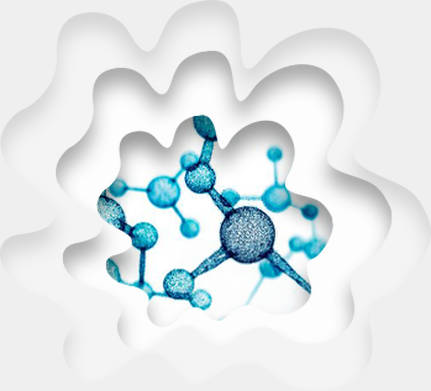Rapid advancements in artificial intelligence (AI) and natural language processing (NLP) have opened up new possibilities in various industries, including the field of medical publications. Far from being perceived as competition or replacement, AI and NLP tools can be leveraged by medical publication professionals, such as medical writers and editors, along with medical affairs teams, to reduce repetitive tasks, alleviate the workload, and create more space for deeper work. Moreover, writers, authors, and scholars with disabilities can utilize AI tools as assistive or adaptive technologies.
In this article, we will explore how medical publication professionals can embrace AI and NLP tools like ChatGPT and use them to their advantage. While ChatGPT and similar platforms can be valuable in certain areas, such as content curation for different stakeholders and target audiences, they are not yet suitable for original medical or scientific writing as that requires subject area expertise and accurate referencing. Thus, it is crucial to understand that despite the rise of AI and NLP, medical affairs and medical publication professionals will remain the gatekeepers of precise and reliable scientific information. Technology acts as a powerful augmentation to their efforts, helping them streamline processes and enhance efficiency.
Let’s delve into some practical benefits of AI and NLP tools for medical affairs and medical publication professionals.
Revolutionizing scientific publishing and editing
The scientific publication process has always been necessary for research, and peer review is crucial in maintaining the quality and integrity of published work. However, traditional peer review has flaws, such as bias, lack of transparency, and time-intensiveness. AI has emerged as a promising solution to transform peer review from its current labor-intensive process by enhancing efficiency, reducing bias, and improving the overall quality of scientific publications. Furthermore, AI-based tools can automate editing by controlling and adjusting documents to meet required styles and formats. Additionally, tools for detecting plagiarism, bad reporting, and manipulated images are being tested by journals to increase confidence in the accuracy and credibility of AI-generated content. The use of AI tools could also enhance the ability of peer reviewers to recognize their own biases, giving them a chance to make peer reviews fairer and more equitable.
Enabling faster, more accurate, and efficient medical writing
In medical writing, NLP plays a crucial role in enhancing computer understanding of human language beyond binary code. For medical writers, the readability of their writing is of utmost importance as it influences the reach, comprehension, and impact of the material. While traditional text processors assess readability based on static metrics like sentence length and syllable count, they lack the ability to comprehend complex grammar, context, and emotional expression within the text. On the other hand, an AI tool based on NLP can leverage this information, self-learn, and generate a variety of texts tailored to different audiences in a fraction of the time. This capability has proven successful in various fields, including oncology, radiology, and nursing.
Furthermore, NLP algorithms hold the potential to alleviate one of medical writers’ most time-consuming and tedious tasks – authoring structured content. AI tools can automate the creation of clinical protocols and study reports, reducing output time from weeks to mere hours. This allows medical writers to focus on activities demanding higher levels of scientific interpretation. Importantly, this automation ensures the highest level of data security and confidentiality, as confidential information remains unseen by human eyes. Achieving increased productivity, data confidentiality, and adherence to regulatory requirements is the significant promise of AI for medical writers.
Empowering medical affairs and medical publication professionals
AI algorithms in medical affairs can analyze networks, scan medical literature, and identify key opinion leaders, providing insights and strategies for effective communication. AI tools can also educate medical writers and professionals by scanning databases, gathering scientific insights, and generating summaries in real-time. These systems can automate the collection and analysis of metrics relevant to medical writing, reducing manual effort and enabling real-time decision-making. It is crucial for medical writers to understand the basic concepts of AI to navigate its impact in healthcare and communicate effectively with AI systems. By being AI-literate, medical writers can accurately distinguish between fake science/research news and real scientific advancements, allowing them to report future healthcare and medical innovations with precision.
AI serves as a valuable tool for medical writers, enabling them to streamline mundane tasks that are necessary but often seen as a waste of their expertise. While AI is not expected to fully replace medical writers, those who leverage AI will likely surpass their counterparts who do not, in terms of efficiency and productivity. By embracing these advances, medical affairs and medical publication professionals can continue to efficiently uphold their critical role in providing accurate and trustworthy scientific information to the healthcare community and beyond.
AI is rapidly evolving; your organization needs to, too
Partnering with organizations like Cactus Life Sciences allows you to tap into expertise that most organizations cannot access in-house. We offer not only individual solutions for these projects but also comprehensive end-to-end strategy and support. As a full-service agency, we can assist with strategic publication support, dissemination strategy, digital tactics, content development, and process management. Additionally, we can create a web portal or HTML platform that simplifies data curation for various formats and channels. This platform ensures easy access to relevant scientific information for medical affairs and publication teams, healthcare professionals, medical science liaisons, and even patients. With Cactus Life Sciences, you can take the next step as we transition from the age of information to the age of curation.
Contact us to discover how integrating AI tools into your workflow can revolutionize the field of medical affairs and medical publications, empowering professionals to excel in their crucial work.
About the author

Kwisha Shah
Kwisha Shah is Marketing Content Manager, Thought Leadership, at Cactus Life Sciences.














Hey, thank you for summarising it so well. Really insightful!